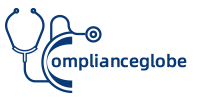Your reliable consulting partner
- Designation and implementation of quality management systems (QMSR&ISO 13485:2016);
- Risk management:;
- Process validation;
- Corrective and Preventive Actions (CAPA);
- Unique Device Identification (UDI)
Quality management system, as a core element in the medical device industry, is not just a series of standards and processes, but also a solid guarantee throughout the entire lifecycle of a product, from research and development to sales. This system ensures that medical devices adhere to scientific principles during the development phase, ensuring the safety and effectiveness of the products. During the registration and declaration phase, it enables smooth compliance with rigorous inspections and grants market access. In the production phase, it maintains efficient and stable production processes to meet market demands. In the sales phase, it provides reliable products, earning customers’ trust.
Compliance Company understands the importance of quality management systems for medical device manufacturers. We have an experienced and highly skilled guidance team that possesses in-depth knowledge of industry regulations and standards. They are able to provide guidance and assistance in establishing and optimizing quality management systems for our clients.
In order to provide our clients with the highest quality of service, we focus on the following business areas and offer comprehensive support:


QMSR
In January 2024, the U.S. Food and Drug Administration (FDA) issued a final regulation called the Quality Management System Rule (QMSR). The purpose of this rule is to align the FDA’s existing quality system regulations, known as current Good Manufacturing Practice (cGMP) requirements, with the international consensus standard ISO 13485:2016 for medical device quality management systems. The FDA recognizes that the regulatory expectations for quality management systems have evolved since the implementation of the current Part 820 over 20 years ago. Therefore, by proposing the inclusion of ISO 13485, the FDA seeks to clarify the international regulatory expectations for QMS of devices under FDA jurisdiction.
The FDA repeatedly mentions in its proposed rule that the QMS requirements in Part 820 and ISO 13485 are fundamentally similar. Hence, it makes sense to harmonize the two, eliminating the redundancies and inefficiencies that many medical device companies face when trying to comply with both QSR and ISO 13485 requirements. The FDA believes that this will strengthen regulation in the medical device industry and promote consistency in quality management systems on a global scale.
The implementation of this rule will enable medical device companies to more effectively meet regulatory requirements, reducing the burden of compliance while enhancing product quality and patient safety.
In summary, the FDA’s new Quality Management System Rule (QMSR) aims to align with international standards and eliminate redundancies and inefficiencies by harmonizing the FDA’s current requirements with ISO 13485, thereby clarifying the international regulatory expectations for QMS of devices under FDA jurisdiction. This initiative seeks to strengthen regulation, improve product quality and patient safety, as well as foster the development of international markets.
ISO 13485:2016
ISO 13485 is a quality management system standard applicable to the regulatory environment of medical devices. Its full title is “Medical Devices – Quality Management Systems – Requirements for Regulatory Purposes.” It incorporates the Plan-Do-Check-Act (PDCA) cycle concept based on the ISO 9001 standard. Compared to ISO 9001, which is applicable to all types of organizations, ISO 13485 is more specialized and focuses on organizations involved in the design, development, production, storage, distribution, installation, servicing, and eventual decommissioning and disposal of medical devices.
ISO 13485 certification primarily involves the following types of organizations: medical device designers and manufacturers, medical device distributors, providers of medical device services, medical device software and hardware developers, as well as suppliers of medical device components/materials. This standard provides specific requirements and guidance tailored to support the unique needs of the medical device industry.
Compliance with ISO 13485 demonstrates an organization’s commitment to meet legal and regulatory requirements while maintaining a consistent focus on the safety and effectiveness of medical devices. By implementing and maintaining an ISO 13485-compliant quality management system, organizations can enhance their ability to ensure the quality and reliability of their products and services, thereby building trust with customers and regulatory authorities.


MDSAP
MDSAP, which stands for Medical Device Single Audit Program, is an initiative launched by the MDSAP Regulatory Authority Committee of the International Medical Device Regulators Forum (IMDRF). MDSAP, also known as the “Five Country Joint Review,” is a new audit program that has been recognized and joined by regulatory agencies from five countries: the United States (FDA), Australia (TGA), Brazil (ANVISA), Canada (HC), and Japan (MHLW).
With MDSAP, medical device manufacturers can undergo a single audit at the same cost to meet the regulatory requirements of all five countries. This helps to avoid repetitive audits, as the certification received through MDSAP is recognized by all participating regulatory authorities. Manufacturers no longer need to go through multiple audits or constantly prepare for various inspections and assessments, saving time, effort, and resources.
The MDSAP audit program harmonizes regulatory standards and requirements across participating countries, ensuring a consistent approach to quality management system compliance and post-market surveillance. By achieving MDSAP certification, manufacturers demonstrate their commitment to global regulatory compliance and enhance their market access opportunities.
The benefits of participating in MDSAP go beyond cost and time savings. It promotes international harmonization and mutual recognition of regulatory systems, simplifies market entry, and strengthens regulatory oversight in the medical device industry. Additionally, MDSAP helps improve patient safety by ensuring that medical devices meet stringent quality and safety standards across multiple jurisdictions.
